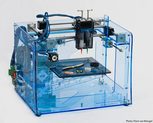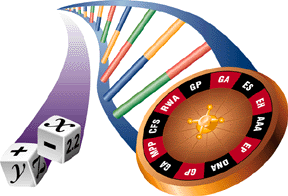|
Spring 2016: Digital Manufacturing
This course examines a variety of advanced digitally-controlled manufacturing processes that convert computer models directly into physical objects. Topics include: Additive manufacturing processes, CNC, Sheet cutting processes, Numerical control, Generative and algorithmic design. Broader social, economic, legal and business implications will also be reviewed. Course involves both theoretical exercises and a hands-on project. (M 1:10pm-3:40pm | 227 Mudd Building | See course on Columbia Canvas) |
|
Fall 2016: Evolutionary Computation (Tentative)
This course covers advanced topics in evolutionary algorithms and their application to open-ended computational design. The field of evolutionary computation tries to address large-scale optimization and planning problems through stochastic population-based methods. It draws inspiration from evolutionary processes in nature and in engineering, and also serves as abstract models for these phenomena. Evolutionary processes are generally weak AI methods that require little information about the problem domain and hence can be applied across a wide variety of applications with relatively little effort. They are especially useful for open-ended problem domains for which little formal knowledge exists and the number of parameters is undefined, such as for the general engineering design process. This course will provide insight to a variety of evolutionary computation paradigms, such as genetic algorithms, genetic programming, and evolutionary strategies, as well as governing dynamics of co-evolution, arms races and mediocre stable states. New methods involving symbiosis models and pattern recognition will also be presented. The material will be intertwined with discussions of representations and results for design problems in a variety of problem domains including software, electronics, and mechanics. |



